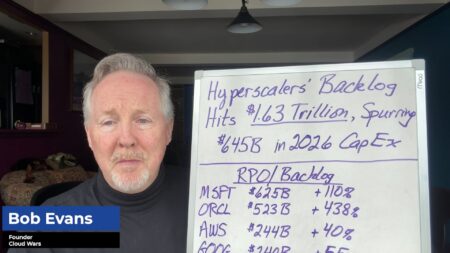
One of the most promising and applicable aspects of blockchain technologies in healthcare is the concept of “smart contracts.”
In short, a smart contract is a blockchain-based technology that enables a number of preset commands to be initiated when specific conditions are met. When combined with healthcare apps, users get a more secure, efficient, and optimized experience than what’s currently available via telemedicine and other digital offerings.
In this article, we’ll be answering some of the most common questions about decentralized healthcare apps using smart contracts and shed light on just how revolutionary this decentralized technology will be, including:
- What are smart contracts?
- How do smart contracts affect healthcare?
- How are smart contracts used with healthcare apps?
What are Smart Contracts?
A smart contract is a type of contract written in computer code based on set parameters agreed upon by users. Once specified conditions are met, the full terms of the contract are executed.
Another way of thinking about smart contracts is a digital If-Then statement – if x occurs, then y is executed. Because these contracts are based on the blockchain platform, these events can be executed without the need for access to a series of centralized databases.
In essence, smart contracts work like paper contracts, where the terms of a contract are executed when certain conditions are met… only smarter. The difference is that smart contracts are based in decentralized technology on the blockchain, where data cannot be changed as it is “chained” between all previous data and all future data. This ledger is duplicated across computer networks, meaning that it is nearly impossible to change once committed, as no other networked computers show these updates. In blockchain lingo, this is referred to as “immutability”.
How Do Smart Contracts Affect Healthcare?
Don’t worry if smart contracts sound vague. The truth is that smart contracts have tons of applications wherever two or more parties are contractually bound.
And for the healthcare industry, this means that there are nearly every facet of healthcare can utilize smart contracts, including:
- Access, storage, and sharing of patient data
- Medication adherence
- Insurance claims
- Facilitating clinical trials
- Supply chain management for pharmaceuticals and medical device manufacturers
- Enhanced network security
- Payment transfers
- And many more applications
How are Smart Contracts Used with Healthcare Apps?
As with our modern world, nearly every interaction we have involves an app of some sort. With the wide abundance of healthcare apps available for every stakeholder (ie. patient, physician, insurer, manufacturer), smart contracts are implemented to ensure that bolster the efficiency, security, and interoperability of these apps.
To gain a broader understanding of just how useful smart contracts are to the future of healthcare, let’s look at a few examples to show you how healthcare apps are being used (and will become the norm).
IoT Security for Remote Monitoring Devices
Remote monitoring devices have long been one of the most revolutionary aspects of telehealth. With wearable devices that automatically measure heart rate, blood sugar, and other patient data in real-time via smartphone apps, physicians are able to deliver care with an accurate record – all integrated with smartphones with technology like Bluetooth Low Energy.
However, security and privacy remain a big issue in wearable monitoring devices, as not all device manufacturers may offer protection from hackers or comply with governmental regulations (particularly if a device is designed in another country).
The solution comes with healthcare apps linked with smart contracts, where only permitted parties are able to gain access to personal data. This data is automatically stored on the blockchain and requires a specific set of cryptographic keys to access data, which are only specified in the smart contract. That means that outside parties won’t have access to this data while also having a definitive record from the wearable device.
Automated Payment for Physicians
One of the most significant pain points for physicians is the lag between providing healthcare services to patients and dealing with insurance companies and other commercial payers. To this end, there’s been a number of healthcare apps that use smart contracts to create a seamless experience without
MedCredits allows doctors to avoid burdensome electronic medical record (EMR) systems or even submit claims for compensation. This platform, based on Ethereum smart contracts, automatically governs the entire patient encounter and payment, without the overheads for billing staff and headaches associated with deciding which procedures are covered.
Supply Chain Transparency
In light of recent events, it’s never been more top-of-mind for medical goods companies to track their assets through each stage of the supply chain. Considering how common fraud, theft, and counterfeiting are in this industry sector, more companies are turning to apps with smart contracts to optimize to their needs.
Two apps that are leading the way for greater supply chain transparency are FarmaTrust and MediLedger. Both of these apps enable companies to a wide variety of flexibility to their operations, including:
- Verify the authenticity of medicines, expiry dates, and other important information.
- Provide accurate end-to-end provenance by seamlessly integrating with manufacturers, wholesalers, and shippers (without switching between different databases and tracking systems).
- Streamline compliance with all regulating bodies (ex. FarmaTrust’s features automated law enforcement notifications when an issue is detected)
- Automatic optimization of supply chain issues with AI (thanks to all of the data being aggregated on one system)
Geographically-Agnostic Electronic Health Records
One of the biggest problems of modern healthcare is data silos, meaning that patients and their healthcare providers have stored electronic medical records (EMRs) on each patient that is not easily accessible. This leads to poorly-coordinated care, especially for those traveling abroad or when physicians must make uninformed decisions that can mean the difference between life and death.
As a blockchain-based solution, Medicalchain is now available to offer a comprehensive single source of truth of a patient’s medical records, creating a better experience for patients and healthcare providers. Patients that use Medicalchain have the ability to see each update of their medical records, give explicit consent every time they are shared with healthcare providers, and even allow patients the choice to automatically share whether researchers (or other 3rd parties) can access their medical information.
Final Thoughts
To sum things up, decentralized healthcare apps using smart contracts are set to become the new paradigm of how patients receive care, manufacturers ensure confidence, and insurers compensate physicians. With the power of the blockchain at the convenience of your smartphone, healthcare is already transforming for a more inclusive and better experience for everyone.
Stay tuned to Acceleration Economy to learn more about developing trends in decentralized healthcare and much more.







